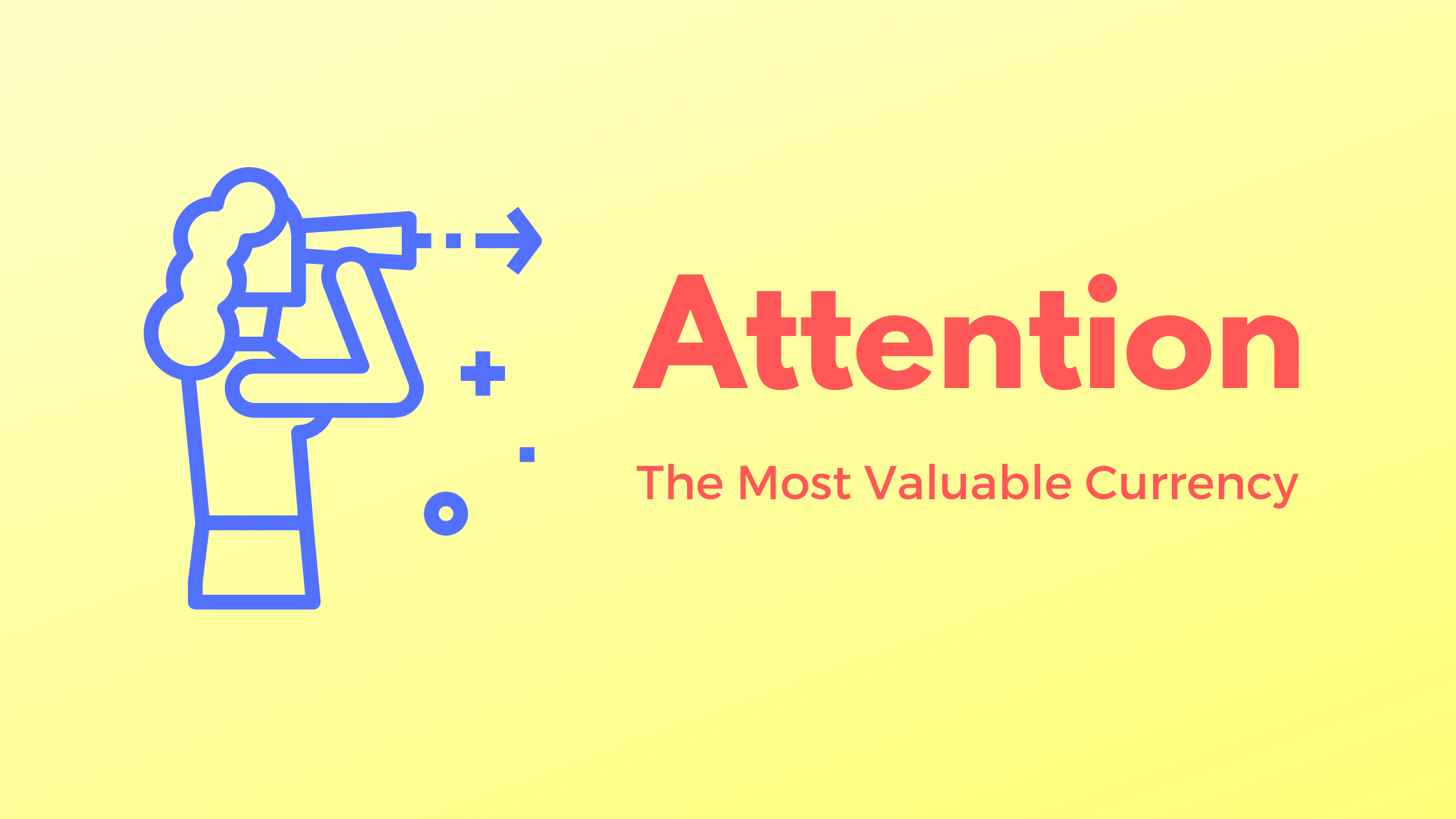
The group was noisy, and nobody was listening. Someone looked into their phone, others split into groups and discussed the latest events happening in the world.
— Who can tell me what do I have here?—she finally asked, as though holding a pinch of salt, but with her fingers looking upward.
— A hair?—said someone.
— Air—said someone else.
— Fingers?—answered the third person.
— I have your attention—said she.
We are used to money as a medium of exchange because that is what we do most frequently—buy and sell goods and services. But we do not purchase stuff randomly (although sometimes it might look like that). We buy what we either need or think we need. Hence, in some instances, buying is nothing but a secondary action after we become aware of something. Therefore, if someone has our attention, they have our money.
It is no wonder that the global advertising market size is US$ 532.5 Billion, and it is expected to grow by 44% in the next four years.1 Companies are paying big money to get your attention and use a broad range of mediums: billboards, TV and radio ads, internet ads, magazine ads, in-mail flyers, etc.
But it is not only companies who fight for your attention. Literally, every person whose outcomes/results/wealth depend on you acting in a specific way (politicians, activists, singers, writers, media portals, etc.) all fight for your attention.
And the situation is aggravated by the fact that our attention is very narrow, with very limited throughput. As described in How People Learn — Human Senses, our conscious attention throughput varies between different senses, ranging from 1 to 40 bit/sec. Comparing with the unconscious attention throughput of 10,000,000 bit/sec for vision, 40 is infinitesimally small.
Each day we have 86400 seconds—time in which we can exchange our attention for anything. But there are some operational costs to run the brain and body: we need to eat, exercise, sleep, etc. If to take out ~10 hours (a wild guess, for the sake of argument), we are left with 50000 seconds. It may sound like a lot, but how many times did you wonder why the day ended so fast?
That’s why it is essential to be aware of what we spend our attention on. It is the ultimate medium of exchange—you give your attention to other people in return for something you find valuable (or, to be honest, sometimes on trash as well, but that is another story). For anything, even for free stuff, you always pay a price with your attention.
And once someone has your attention, they will fight for your money, time, effort, and other things you have.
Stay aware!
If you liked this article, consider subscribing below and following me on twitter (@iuliangulea).